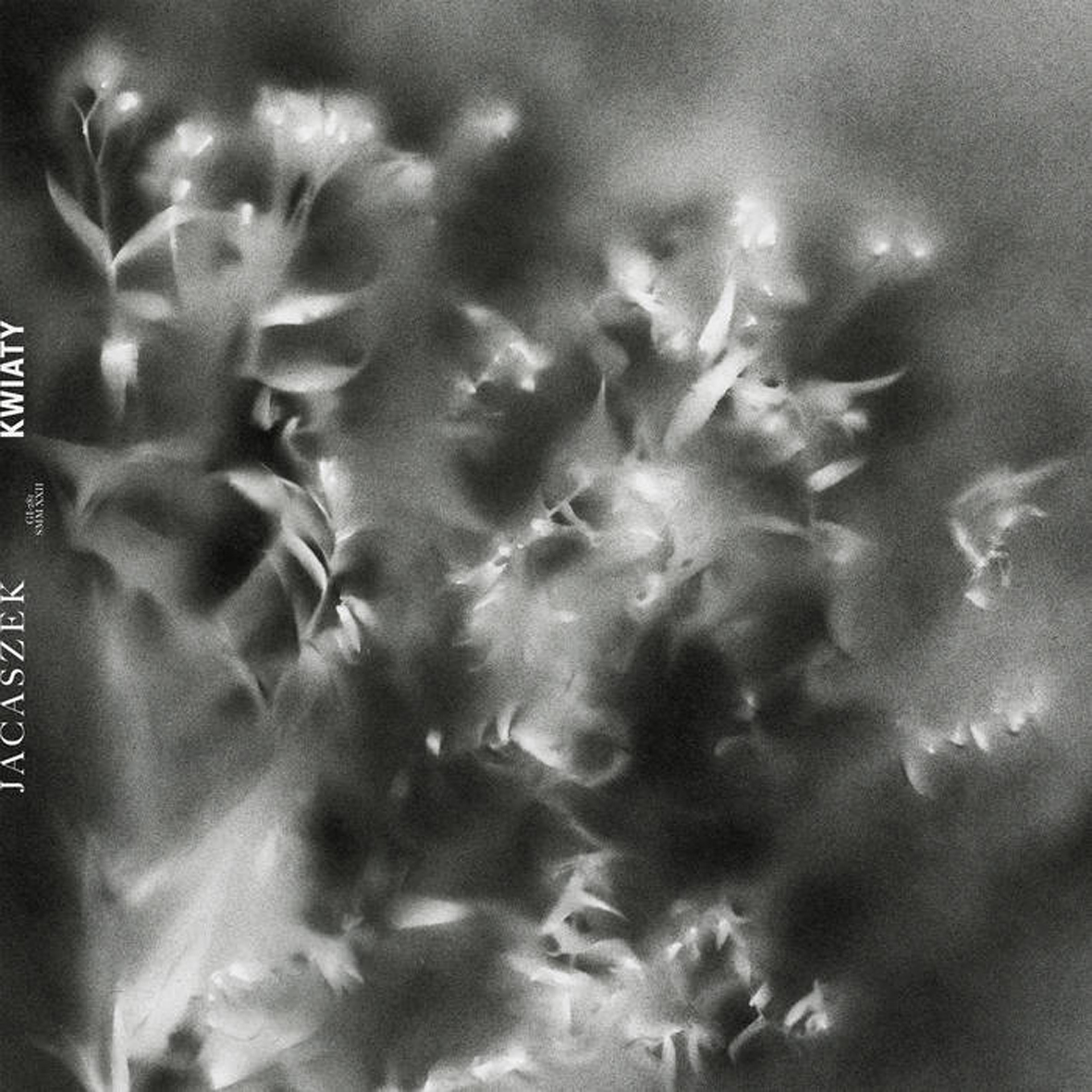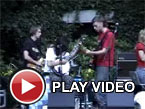Jacaszek, "KWIATY"
 I have historically had a complicated relationship with Michal Jacaszek's music, as I love his aesthetic and he consistently releases deeply immersive and intriguing albums, yet he has an uncanny knack for stylistic quirks that subjectively rub me the wrong way (harpsichords, a penchant for gloom and somberness, etc.).  Consequently, I was more or less just waiting around for an album to finally surface that was a bit more to my taste and KWIATY is that album. One one hand, Jacaszek mostly sticks to his familiar territory of dark, hiss-ravaged neo-classical fare, but the new twist is that he enlisted a trio of female vocalists to give voice to the metaphysical poetry of 17th century Englishman Robert Herrick.  While such a conceit admittedly sounds very arcane and high-concept on paper, it reveals itself to be quite beautiful in execution, often resembling an eerie, crackling, fractured, and otherworldly strain of dreampop.
I have historically had a complicated relationship with Michal Jacaszek's music, as I love his aesthetic and he consistently releases deeply immersive and intriguing albums, yet he has an uncanny knack for stylistic quirks that subjectively rub me the wrong way (harpsichords, a penchant for gloom and somberness, etc.).  Consequently, I was more or less just waiting around for an album to finally surface that was a bit more to my taste and KWIATY is that album. One one hand, Jacaszek mostly sticks to his familiar territory of dark, hiss-ravaged neo-classical fare, but the new twist is that he enlisted a trio of female vocalists to give voice to the metaphysical poetry of 17th century Englishman Robert Herrick.  While such a conceit admittedly sounds very arcane and high-concept on paper, it reveals itself to be quite beautiful in execution, often resembling an eerie, crackling, fractured, and otherworldly strain of dreampop.
One of the most appealing aspects of Michal Jacaszek's art, for me anyway, is how effortlessly pure and anachronistic his music seems.While he is ostensibly a modern classical composer, he crafts melancholy and Romantic chamber music in a way that suggests he is stylistically indifferent to the last few hundred years of trends. As if that were not enough, Jacaszek further blurs the lines of reality with an elegant patina of hiss and distortion and artful infusions of field recordings. In the realm of texture, Jacaszek is a true master, bringing his groaning strings and simple melodies to vibrant life with a mixture of visceral graininess, ghostly afterimages, tape distress, and decay.He also has an impressive intuitive talent for spacious, uncluttered arrangements, conveying a lot with a minimum of moving parts.At his best, Jacaszek essentially sounds like a broken music box playing in a haunted snowglobe.My only real sticking point is how monochromatically bleak that vision can be, which is why KWIATY is such a revelation: with vocalist Hania Malarowska, Jacaszek has found the ideal foil for transforming his deep melancholy into something darkly sensual.Jacaszek has not so much changed as simply found the one piece that was naggingly missing from his otherwise perfect puzzle. While Malarowska is the album's clear centerpiece, she is also joined by Joasia Sobowiec-Jamioł and Natalia Grzebała to form a trio of ghostly Sirens cooing through the crackling, psychotropic murk of Jacaszek’s otherworldly dream.
Amusingly, I was driving myself crazy trying to figure out who Malarowska’s vocals called to mind, before finally realizing that it was Sade.That goes a long way towards explaining why gorgeous pieces like "To Perenna" sound like they were recorded by an erotic ghost on a windsweptbeach.Curiously, despite his hazy and diffuse aesthetic and the fact that he is borrowing his words from a 17th century poet, Jacaszek proves to be an astonishingly great songwriter.If "To Perenna" had been handed to a producer less unswervingly focused on evoking a bleary, hallucinatory, and achingly romanticpast, it is not inconceivable that it could have been a soulful R&B smash.  "To Violets" is another favorite of mine, as it boasts similarly strong melodies and sensuous vocals, as well as an absolute beautiful theme that sounds like a warbling gramophone recording of an angelic chorus.  As for the rest of the album, Jacaszek and company occassionally allow themselves to blossom again into fully formed song ("kwiaty" translates as "flowers," incidentally), but the primary emphasis is upon mood and atmosphere.KWIATY does not feel like a suite of discrete and structured songs so much as it feels like mysterious and flickering transmission from a lovesick apparition from an imagined past.The melodies and arrangements are wonderful, but they are largely secondary to the immersive and transcendent illusion that Jacaszek is expertly weaving.If I found an mysterious old Victrola record in the dusty attic of a ruined mansion and a sexy revenant seemed to be bleeding into a cracking, hissing, and distressed recording of a string ensemble, the last things on my mind would be chord changes and harmonies.  The same is true of KWIATY.
The sole wobble in Jacaszek's otherwise perfect vision comes near the end of the album with the duet "To Blossoms," as the straightforward acoustic guitar, male-female duel vocals, and subtle electronic bloops make it feel like a cover of a Trembling Blue Stars song rather than a half-remembered dream of an enigmatic and beautiful otherworldly tableaux.  Admittedly, it is a perfectly fine and well-crafted song, but it is a bit too structured and conspicuously contemporary to avoid breaking through the sustained soft-focus unreality that wonderfully pervades the rest of the album.Aside from that, I love absolutely everything about KWIATY, as Jacaszek displays an unerring gift for mood, dynamics, melody, texture, nuance, depth, and mystery.This album is a sublime masterpiece, revealing just enough soul and exquisite melody at the surface to instantly lure me in, but elegantly obscuring an ocean of unknown depth beneath.
Samples:
 



